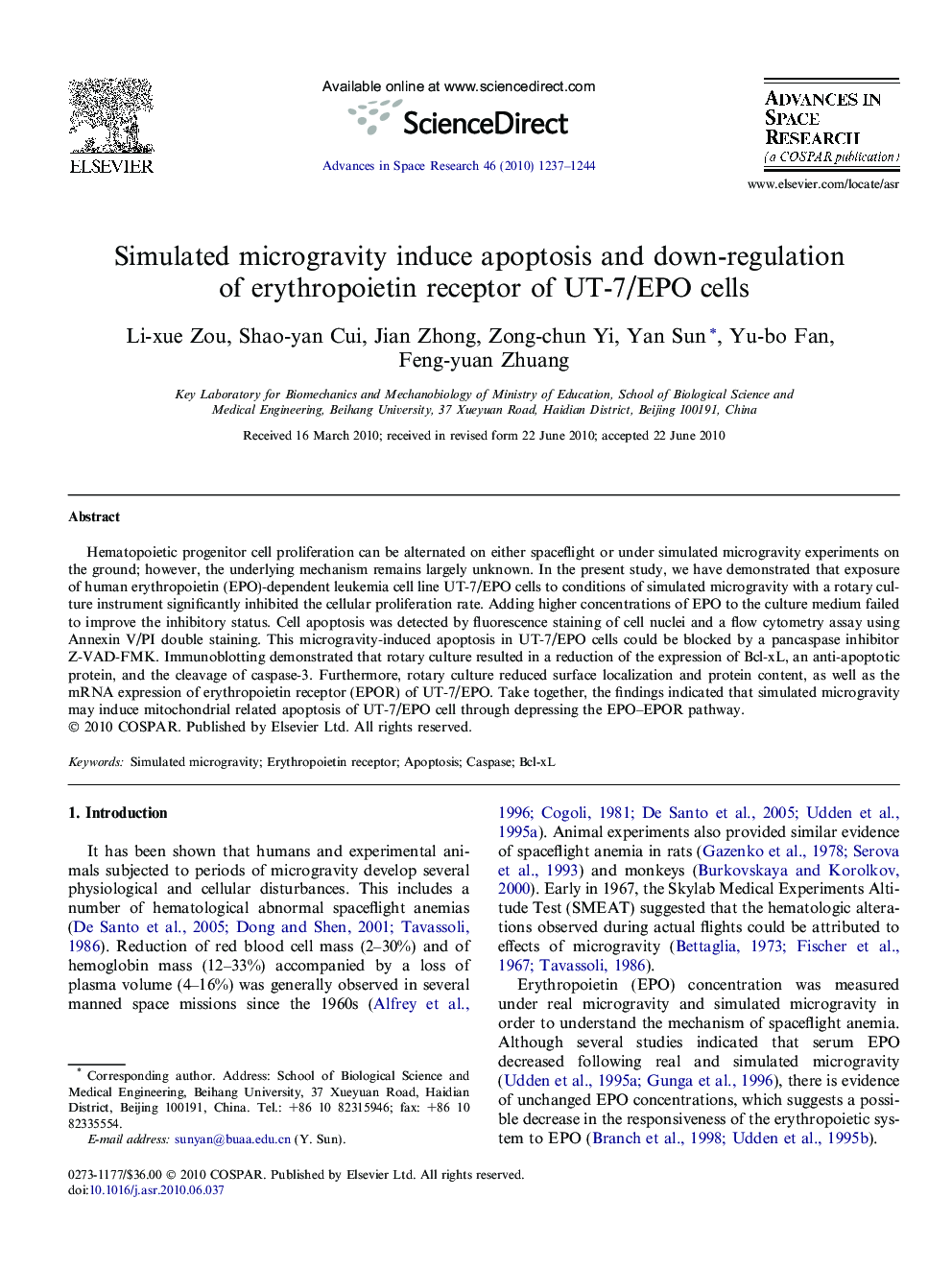| Article ID | Journal | Published Year | Pages | File Type |
|---|---|---|---|---|
| 1766264 | Advances in Space Research | 2010 | 8 Pages |
Abstract
Hematopoietic progenitor cell proliferation can be alternated on either spaceflight or under simulated microgravity experiments on the ground; however, the underlying mechanism remains largely unknown. In the present study, we have demonstrated that exposure of human erythropoietin (EPO)-dependent leukemia cell line UT-7/EPO cells to conditions of simulated microgravity with a rotary culture instrument significantly inhibited the cellular proliferation rate. Adding higher concentrations of EPO to the culture medium failed to improve the inhibitory status. Cell apoptosis was detected by fluorescence staining of cell nuclei and a flow cytometry assay using Annexin V/PI double staining. This microgravity-induced apoptosis in UT-7/EPO cells could be blocked by a pancaspase inhibitor Z-VAD-FMK. Immunoblotting demonstrated that rotary culture resulted in a reduction of the expression of Bcl-xL, an anti-apoptotic protein, and the cleavage of caspase-3. Furthermore, rotary culture reduced surface localization and protein content, as well as the mRNA expression of erythropoietin receptor (EPOR) of UT-7/EPO. Take together, the findings indicated that simulated microgravity may induce mitochondrial related apoptosis of UT-7/EPO cell through depressing the EPO-EPOR pathway.
Related Topics
Physical Sciences and Engineering
Earth and Planetary Sciences
Space and Planetary Science
Authors
Li-xue Zou, Shao-yan Cui, Jian Zhong, Zong-chun Yi, Yan Sun, Yu-bo Fan, Feng-yuan Zhuang,
